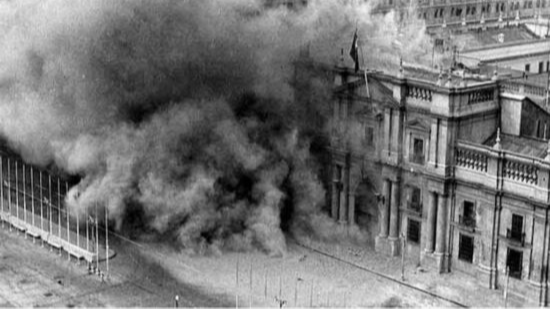
By María Josefina Arce
On September 11, 1973, horror and death came to Chile. The coup d'état, led by General Augusto Pinochet, against the government of constitutional president Salvador Allende broke democracy and installed state terrorism. It was the beginning of one of the darkest and saddest periods in the history of the South American nation.
For 17 years, the military dictatorship resorted to the cruelest and most perverse methods to exterminate political opponents. Torture, executions, forced disappearances and exile were part of the daily life of Chileans.
The number of victims of the military dictatorship, in whose establishment and subsequent maintenance the United States played a decisive role, amounts to more than 40,000, including those tortured, executed or disappeared.
The hand of the CIA, Central Intelligence Agency of the United States, was always behind the coup. Since Allende was emerging as the winner of the 1970 elections, U.S. agents stationed in Chile began a campaign of attrition, in collusion with the right wing.
This complicity continued after Allende's rise to power. Washington, together with the oligarchy, would be in charge of sabotaging the economy of the South American country to create a tense situation and discontent among the population.
They were three difficult years, of obstacles to carry out the government program of the Popular Unity in favor of all citizens, and which had among its most striking measures the nationalization of copper, which returned to its true owners an important natural resource of the country.
The coup uprising overthrew what had been achieved in the 1000 days of the Popular Unity government, and turned Chile into a laboratory of neoliberalism, an unjust, privatizing and inequality-generating model that was spreading throughout the region.
But the persecution and elimination of political opponents also spread throughout the continent, with the support of the United States. The so-called Operation Condor was a repressive coordination between the dictatorships of the area that left tens of thousands of victims.
Fifty years after that fateful day of September 11, 1973, which sowed terror in Chile, there are many open wounds in Chilean society. One question that still remains unanswered is where are the more than one thousand missing persons? For this reason, the government of President Gabriel Boric launched a National Plan for the Search for Truth and Justice.
Not all those responsible for the crimes against humanity committed during the military dictatorship have yet been punished, nor has the whole truth been clarified.
Pinochet, a key man of the United States, died in December 2006 at the age of 91 in the Military Hospital in Santiago de Chile, without having been convicted for his atrocious crimes and human rights violations.
Today many Chilean families still mourn his parents, children and grandchildren. September 11, 1973 changed the course of the country, which was immersed in horror and fear. For this reason, although the right wing tries to rewrite history and deny the past, for a large part of society it is forbidden to forget in order to avoid the return of a dark period that took the lives of tens of thousands of Chileans.

